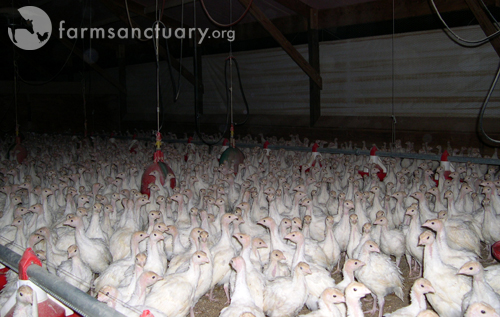What we decide to eat each day is among the most important decisions we make. Our food profoundly affects the quality of our health, and it can literally kill us. We know through groundbreaking studies, like T. Colin Campbell's "The China Study" that the risk of heart disease and cancer, the leading causes of death in the U.S., is reduced by eating plants instead of animals. And, choosing plant foods instead of meat, milk and eggs saves animals' lives and helps protect the environment. The United Nations and Worldwatch Institute report that the livestock industry is among the top contributors to our planet's most significant environmental problems, locally and globally. Clearly, how we eat has vast impacts for our health, animals and the planet.
Most people who are concerned about the food they eat know that factory farming is an aberration. It treats animals like commodities and subjects them to egregious cruelty, pollutes and destroys the environment, undermines the integrity of rural communities, and puts consumers at risk. And, with growing awareness about the many harms of industrialized animal farming, conscientious citizens are rejecting it and changing how they eat.
This escalation in the demand for "organic," "free-range," "humane," "natural," and similarly marketed foods illustrates a growing distaste for factory farming. However, agribusiness has exploited this trend by pushing to lower the standards for "organic" and other labels, and advertising that animal products are produced in humane and sustainable ways. Unfortunately, these labels sound a lot better than they actually are.
Increasingly, large scale, industrialized animal farms are promoting themselves as humane and sustainable, and misleading consumers. Meat labeled as "naturally raised" and eggs labeled "cage free" can come from animals who are confined by the thousands in factory farm warehouses, living in their own feces. Detailed information and descriptions about what these various labels actually mean can be found in Farm Sanctuary's "Truth Behind the Labels" report, which examines all government, industry and third-party led labeling programs addressing the welfare of animals raised for food.
The best way to become familiar with farms and know how they operate is to visit them. This helps educate citizens, bringing consumers closer to the source of their food, and it also compels producers to be accountable for their practices. If producers won't let the public see their production practices, that says something. It is encouraging that consumers are seeking to make food choices that are consistent with humane values, but that means looking for the truth behind the labels.
